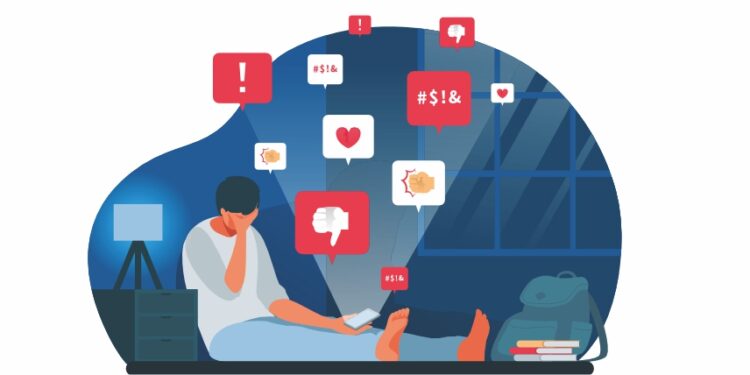Although many of us like using social media to stay in touch with our friends and colleagues as well as with entities who we like and love, excessive use can exacerbate addiction-related issues and can cause problems with anxiety and depression. Many online surveys and reports are suggestive of the fact that excessive social media usage can also cause mental ailments.
This blog discusses the role that various social media websites play in our mental health and well-being. Besides, this blog write-up also discusses DIY so that we can manage the mental health problems caused by various social media sites.
Role of social media on the mental health of humans
Social media may have some positive aspects on humans. But in this blog write-up, we discuss the negative aspects of social media on the human mind. This paragraph discusses this in brief.
● Make the users of social media feel insecure
Even if you are aware that the photographs you are seeing on social media have been altered, they may nevertheless cause you to feel anxious about your appearance or the circumstances of your own life. It is common thing that most of us prefer to discuss the positive aspects of our lives online or offline rather than the negative aspects or events that we face, experience, or go through. However, excessive social media use makes the user feel dissatisfied and envious, particularly when individual visits through a friend’s Photoshopped pictures of their beach vacations or goes through their exciting new jobs.
● Social media addictions
Social media platforms can cause social media addictions. Like an addiction, feeling like you’re missing out on particular things can lower your self-esteem, cause worry, and increase your use of social media.
● Anxiety and depressions
Interactions (face-to-face) are essential for maintaining human mental health. It is important to make eye contact with the right person who is caring and passionate. Such actions help to alleviate stress and improve an individual’s mood effectively and efficiently. Those who are regular users of social media are more likely to suffer from mood disorders; they are more likely to experience sadness and anxiety. Reports suggest that if you attach weightage to social media interaction instead of in-person relationships, you may face mental issues. Social media addictions can also result in an individual being less attentive or focused. Because of this, individual daily life activities can get adversely affected.
● Isolations
According to online reports, frequent use of various social media websites does not help people feel less lonely. In contrast, reports suggest that cutting back on social media can boost an individual’s general well-being and make that person feel less isolated and lonely.
● Cyberbullying
On social media, about 10% of teenagers report being bullied, and many other social media users experience negative comments. Some social media platforms can act as centers and hubs for the dissemination of damaging lies, rumors, and abuses that can cause a range of mental ailments to the social media user.
DIY Tips to Manage The Negative Aspects of Social Media
Following are a set of actions that can help an individual to DIY manage the negative aspects of social media:-
● Reduce online time spent on various social media websites
● Browse social media only if you require important information
● Better spend time offline along with friends
● Express gratitude as and when needed, as it helps avoid resentment, discontent, and animosity.
● Participate in regular exercises
● Practice mindfulness.
● Help others when they need them.
Conclusion
Want to know more about social media and its positive and negative effects on humans then it is recommended that you visit relevant websites that contain related information. Besides, if you are interested to know how to overcome issues that are caused by excessive social media use, then go online; there are related contents that can guide you in this regard.















 The Inc Media is one of the most renowned global Online Business Magazines, that carries news stories about entrepreneurship, small business management, and business. Being a global business magazine, we carve for influential stories and try to take them globally to uplift the business standards and educate the people about new innovations in the business world...
The Inc Media is one of the most renowned global Online Business Magazines, that carries news stories about entrepreneurship, small business management, and business. Being a global business magazine, we carve for influential stories and try to take them globally to uplift the business standards and educate the people about new innovations in the business world...